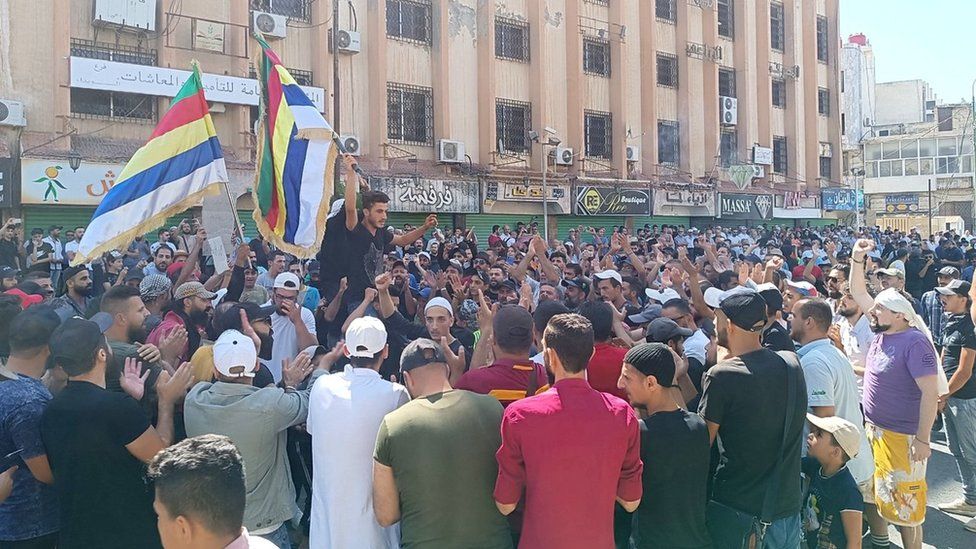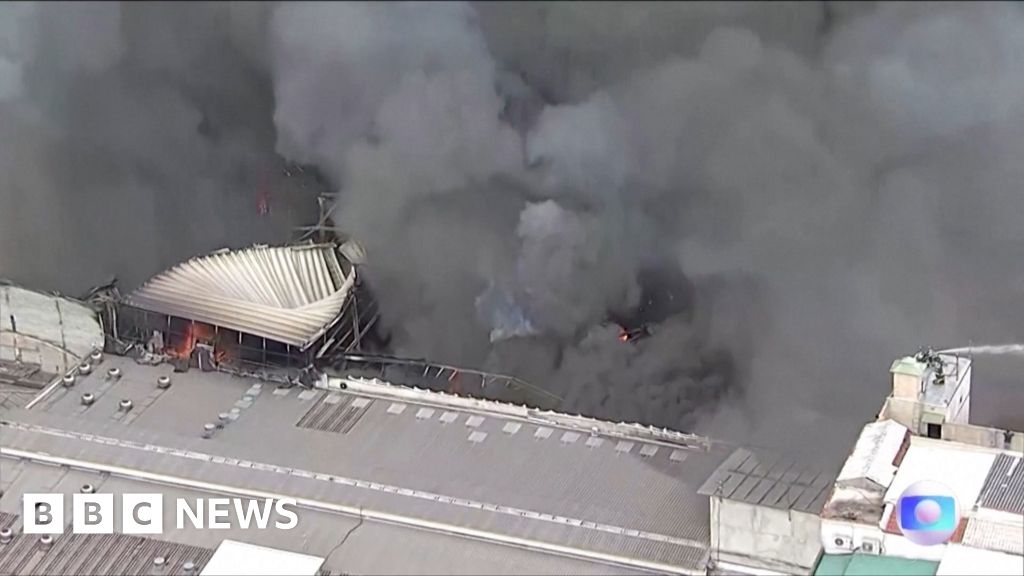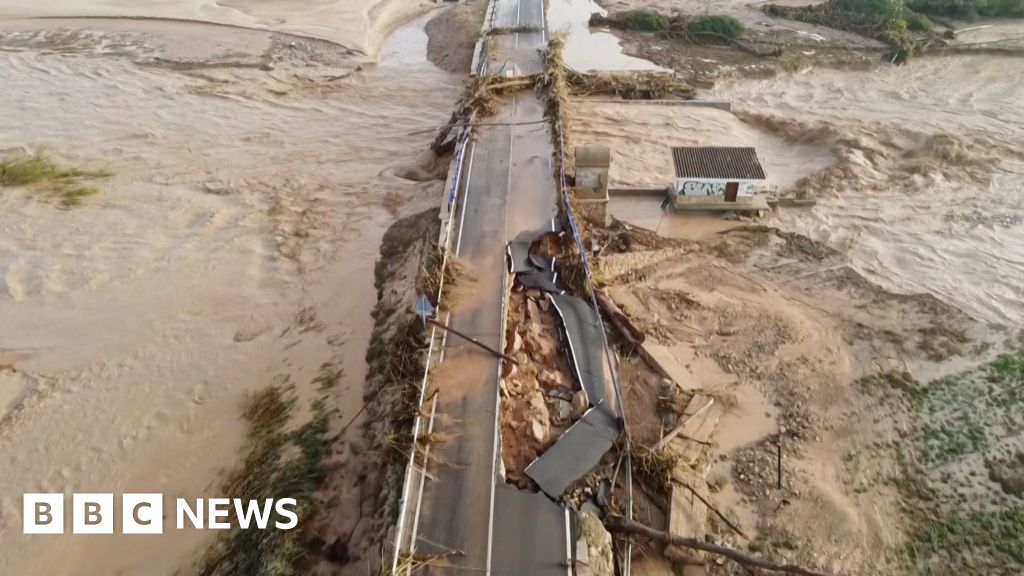ARTICLE AD BOX
 Image source, Reuters
Image source, Reuters
A photo from activist collective Suwayda24 showed protesters waving Druze flags in Suweida's al-Sayr square on Tuesday
By Lina Sinjab
BBC News, Beirut
Protests against Syria's government are intensifying in the country's south, amid widespread anger over its decision to cut fuel subsidies when millions of people are already struggling to afford basic goods because of hyperinflation.
A large banner showing President Bashar al-Assad hanging in one of the main squares in the city of Suweida is seen being set on fire in one video shared on social media over the past week.
"We want everyone to come out to the streets across Syria," says a man in another clip. "We are here against poverty and humiliation, calling for our rights. Everyone should be out protesting."
Crowds have even been filmed calling for the fall of the president, with chants such as "Long live Syria and down with Bashar al-Assad" echoing those of 2011 pro-democracy uprising that descended into civil war.
Government-held Suweida has witnessed protests against Mr Assad over the past 12 years, but this is the first time that such slogans have been heard on its streets.
His regime has long been careful in its dealings with the minority Druze sect whose followers make up most of the residents of the city and its surrounding province. It has tolerated dissent there to a larger degree than it would in other areas under its control.
Some protesters have also been taking place in neighbouring Deraa province, where the 2011 uprising began but which was retaken by the government seven years later.
Demands for change
Deteriorating living conditions have pushed many people to take to the streets in recent months.
But the protests intensified last week, after the government announced the total lifting of subsidies on petrol and a partial lifting of subsidies on fuel oil.
A worsening economic crisis, with a currency collapse fuelling hyperinflation, has left almost 90% of the population living below the poverty line. But the sudden spike in fuel prices has made the situation even worse.
Some public sector workers' monthly income is worth as little as $20 (£15.80) at the black market exchange rate. That has left them unable to afford even essential food supplies for their families.
Image source, Reuters
Image caption,President Bashar al-Assad's government has blamed the economic crisis on strict US sanctions imposed in 2019
Earlier in the month, a new group calling itself "The 10th of August Movement" issued a statement calling for living conditions to be improved in Syria. Many of those behind the group are believed to be from Mr Assad's minority Alawite sect, which has steadfastly supported him during the war.
The statement demanded the government raise the monthly minimum wage so that it was worth at least $100; provide electricity for at least 20 hours a day, up from the current average of three in most areas; and issue new passports within a month, signalling the desire of many young people to leave the country. The statement also called for the release of political prisoners.
In recent days, photos of people in various cities across Syria with letters making similar demands and expressing opposition to Mr Assad's rule have posted on social media.
Exiled opposition groups hope that these developments will lead to lead to long awaited changes, but the president's hold on power appears to be secure for now.
Alawite anger
The criticism from his fellow Alawites will, however, be a cause for concern for Mr Assad.
Some are reported to have been arrested after they took to social media platforms to call on the president to act.
Ahmed Ibrahim Ismail is one of them. He is from Jableh, a town in the north-western coastal province of Latakia that is the heartland of the Alawites.
Image source, Suwayda24
Image caption,A video from Suwayda24 on Wednesday showed a banner featuring the president on fire in central Suweida
Mr Ismail publicly criticised the president following a TV interview two weeks ago.
"I wished to hear something else from you... You are flying away from reality. I am very disappointed. I haven't anything from you to tackle my pain," he said.
He went on to describe his deteriorating living conditions.
A few days later, Mr Ismail's daughter announced on her Facebook that he had been detained.
Many similar stories have been circulating online.
During the past 12 years of protests and war, many have argued that Mr Assad would be able to stay in power unless the Alawite community turned against him.
So far, there is no evidence of a strong organised movement that could threaten his rule, but the growing public anger - especially among Alawites - could be the start of something bigger.

 1 year ago
26
1 year ago
26








 English (US)
English (US)